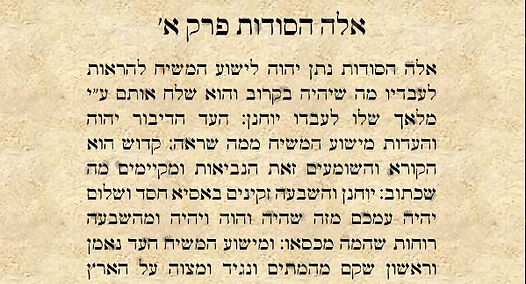 Many people perceive the Book of Revelation as a difficult prophetic book, partly because it can be challenging to reconcile certain prophecies in the Old Testament with those given in Revelation. For example, Revelation 22:5 translated from Greek says:
Many people perceive the Book of Revelation as a difficult prophetic book, partly because it can be challenging to reconcile certain prophecies in the Old Testament with those given in Revelation. For example, Revelation 22:5 translated from Greek says:its gates will never be shut by day, for there will be no night there.2
1 Rev. 22:5, Holman Christian Standard Bible. Some translations: “night will be no more”.
2Rev. 21:25, translated from Greek.
Based on the above verses translated from the Greek version of Revelation, many scholars1 have concluded that the day–night cycle will cease on the new earth, and that it will always be day as “its gates will never be shut by day, for there will be no night there.”2
However, Revelation 20:10 mentions “ day and night,” and chapter 22:2 mentions “ every month,” which could only be possible if day and night continued as before.
YHWH himself also declared that Sabbaths and New Moons will be kept on the new earth:
1 See e.g. Exposition of the Book of Revelation, New Testament Commentary, vol. 20, pp. 579, 582: “the cessation of night… … …in the new creation the cosmic division of night and day will have ceased to function”; Revelation, Baker exegetical commentary on the New Testament, p. 764; The New International Greek Testament Commentary, The book of Revelation, p. 1096; The Teacher’s Commentary, p. 1088; etc.
2 Rev. 21:25, translated from Greek.
3 Or “every week on the Sabbath, and every month on the New Moon…”
4 Is. 66:22-23, translated from the Masoretic Text.
Without the day and night cycle, Sabbath is impossible, and without the lunar cycles, new moons are impossible too.
In Jeremiah chapter 33, it is stated that the day-night cycle is just as permanent as YHWH’s covenant with David!
“Thus says YHWH, ‘If you can break my covenant with the day, and my covenant with the night, so that daytime and night-time will not be in their time–then my covenant will also be broken with Dawid my servant, that he will have no son ruling as king upon his throne…”1
Yeshua Messiah is the ultimate fulfilment of this prophecy about the ‘Son of David.’ So how can we on the one hand believe that the day-night cycle will cease, but on the other hand still think that the covenant with David regarding the Messiah will never be broken?
Based on the above-mentioned verses from Isaiah and Jeremiah, there is absolutely no way that the day-night cycle will cease. So, why does the Greek Revelation only mention daytime in chapter 21:25 as if there will be no night at all?
“…its gates will never be shut by day, for there will be no night there.”2
1 Jer. 33:20-21, translated from the Masoretic Text.
2 Rev. 21:25, translated from Greek Textus Receptus.
“And your gates will be open continually, day and night they will not be shut, for there will not be night.”
In this Hebrew version of Revelation there is no hint that the day-night cycle will cease as it clearly mentions both “day and night.”
But, how is it possible that “day and night” “there will not be night”? How can there be night, and at the same time, no night? This is only a seeming contradiction. In Hebrew, ‘night’ and ‘darkness’ are synonymous.2
The very first mention of ‘night’ in the Bible (Genesis 1:5), is where Elohim calls ‘the darkness’ ‘night’!
1 Note that there are some minor differences between these verses in the Hebrew Revelation and the Masoretic text. This clearly shows that these phrases were not fraudulently inserted into Revelation just to conform it to the Old Testament. If that were the case, then why would there be any differences from the Masoretic Text?
2 For examples where “night” refers to darkness and not to a specific time of the day, see Ps. 139:11, Mic. 3:6, etc.
Conversely, in the Greek translation the first occurrence of “night” in Revelation 21:25 is omitted, possibly to avoid the seeming contradiction of ‘night’ and ‘no night’ at the same time.
Now let’s discuss Revelation 22:5. In the Hebrew Revelation this verse is mostly quoted from Isaiah 60:19
1 Gen. 1:5, translated from the Masoretic Text.
2 Could also be translated: “And in it the sun will no more be for light by day, and for brightness; neither will the moon shine for you…”
It is noteworthy that the Greek version attempts to simplify the Hebrew readings, and ‘correct’ the seeming contradictions of ‘night’ and ‘no night’ at the same time:
Based on Ms. Oo.1.16 and Ms. Oo. 1.32 from the Cambridge University Library © February 2022.